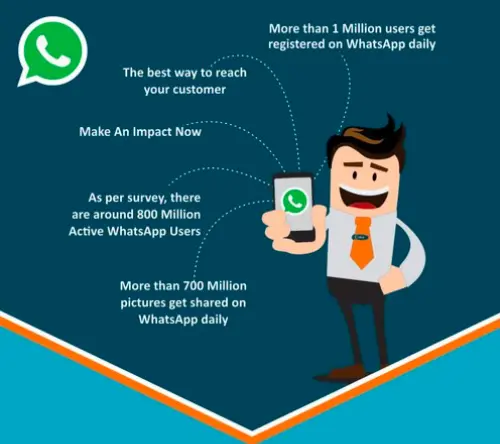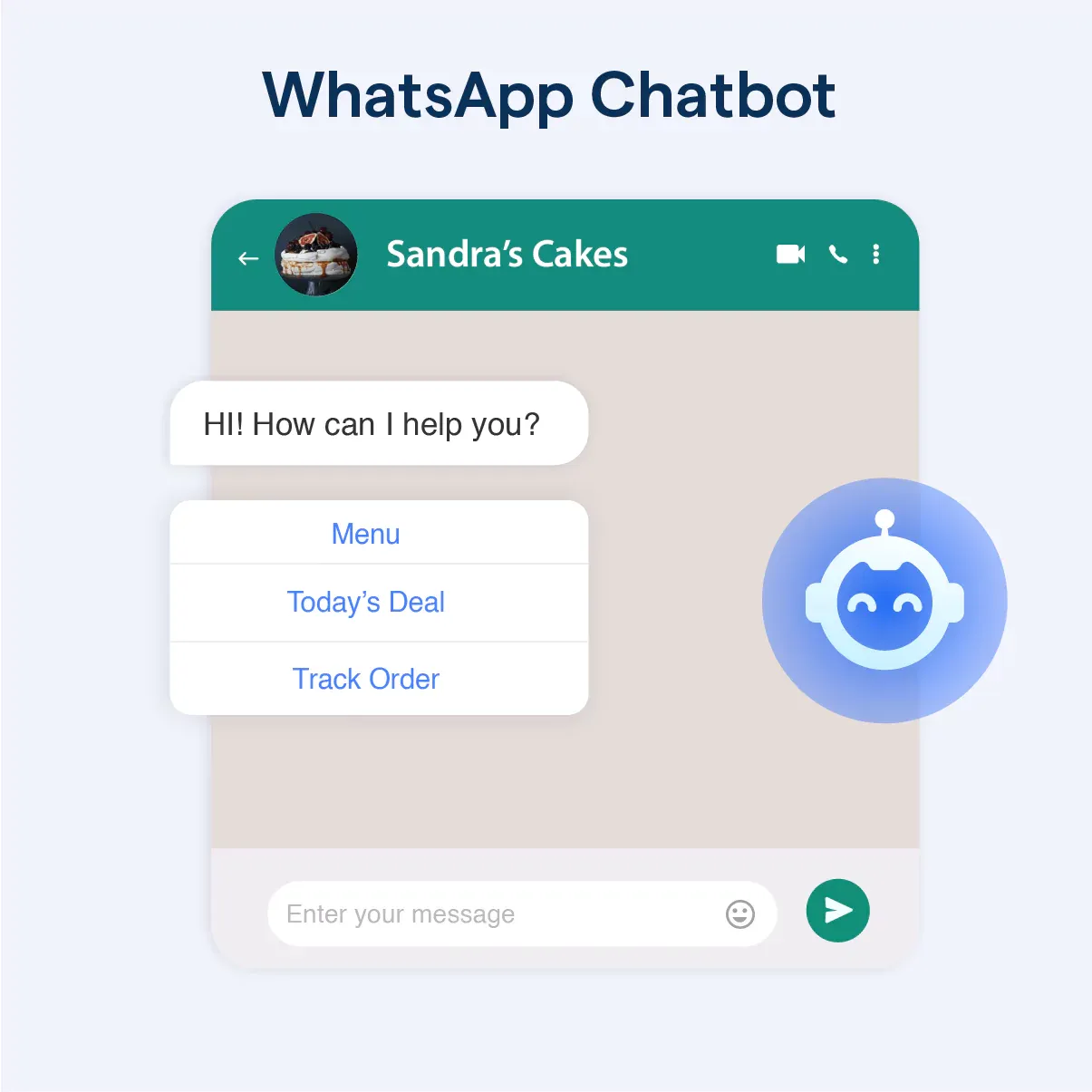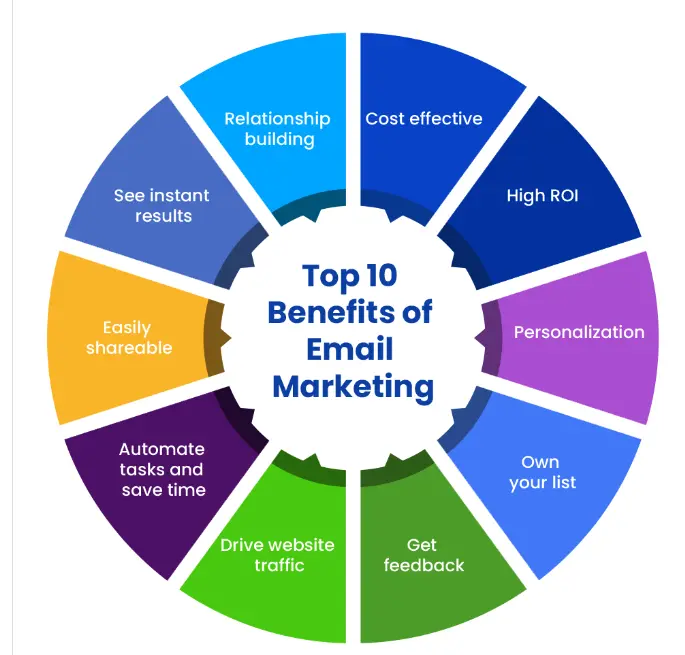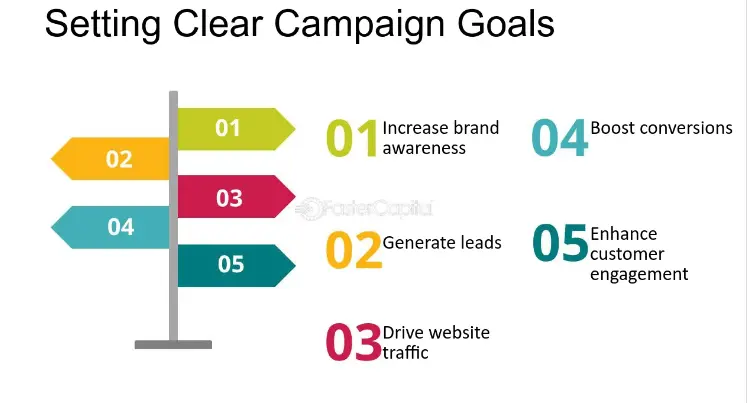Introduction
Brands prefer to use multiple communication channels to build closer connections with their target groups. Email and WhatsApp have established themselves as popular conversation platforms.
WhatsApp marketing and email marketing continue to attract businesses looking for the best return on investment (ROI). A recent study by Omnisend found that WhatsApp marketing has an astounding open rate of 98%, surpassing the email average of 20% (Source: Omnisend, 2022).
Moreover, Narrate research shows that WhatsApp-WhatsApp marketing achieves an astounding conversion rate of 40%, significantly surpassing email’s 3.2% (Source: Narrate, 2023). However, according to Statista, email remains a powerful force, with a global user base reaching 4.3 billion by 2022. Additionally, Campaign Monitor reports that the average ROI for every dollar invested in email marketing is $36 (Source: Campaign Monitor, 2022).
Email marketing has long been considered a reliable tool for businesses, but the rise of instant messaging platforms like WhatsApp has blurred the lines of effectiveness.
So who wins the email vs. WhatsApp marketing debate? Which is the more effective marketing channel?
In this article, we'll analyze the advantages of WhatsApp marketing over email marketing to help you choose the best solution for your business.
Let's dive in!
WhatsApp Marketing: A Deep Dive
Have you noticed that almost all eyes are on your WhatsApp chats? Imagine if you could leverage this attention for your company.
This is where WhatsApp marketing comes in. Chatting directly with your customers through WhatsApp, promoting your products, and capturing their attention is key. But there's a catch.
For businesses, there is a special version of the app called WhatsApp Business. With WhatsApp Marketing, you use the WhatsApp Business platform to engage with customers, share promotional content, provide customer support, and do one-to-one communication. WhatsApp Marketing can also be used to send messages to a large audience.
Let's be honest, when we hear the buzz about WhatsApp, we see it right away. This is why WhatsApp Marketing is so great. Messages sent via WhatsApp have a much higher open rate compared to emails. This means that what you have to say or sell gets a lot more attention, making WhatsApp marketing powerful.

WhatsApp marketing gives businesses many opportunities to build strong customer relationships through personalized interactions and tailored messages.
Benefits of Whatsapp Marketing
Let's look at the benefits of WhatsApp marketing:
- Direct and Conversational Communication: One of the best things about using WhatsApp for marketing is the chat vibe. It's not like sending a cold, formal email. It's chatting.
- Rich Media Capabilities (Images, Videos): Whether it’s a tour of your new product, a quick how-to video, or some eye-catching images, WhatsApp marketing means you can send it all with a tap.
- High open rates and engagement: WhatsApp's impressive open rates ensure that your messages are more likely to reach your target audience, leading to higher engagement levels and increased responsiveness.
- Personalization opportunities: Leveraging WhatsApp marketing allows businesses to personalize their messages, offers, and promotions based on user preferences, driving a deeper connection with customers.
- Building strong customer relationships: By engaging with customers in real-time and offering personalized support and assistance, businesses can establish and nurture strong, lasting relationships with their audience.
WhatsApp Chatbots: Automating Customer Interactions
Leveraging chatbots for WhatsApp marketing can streamline customer interactions and provide a host of benefits for businesses looking to enhance their customer service capabilities.
- Benefits of using chatbots: Introducing chatbots on Whatsapp Marketing can offer immediate support, seamless query resolution, and 24/7 availability to users, enhancing the overall customer experience.
- Integration with CRM and marketing automation: By integrating chatbots with CRM and marketing automation systems, businesses can gain valuable customer data insights, automate repetitive tasks, and deliver personalized interactions on Whatsapp Marketing campaigns.

Real Life case study of Whatsapp Marketing
Now we shall see a few real-life successful WhatsApp marketing examples :
I’ll bring you back your beloved clothes” WhatsApp marketing campaign
Organizer – Unilever
Unilever Plc (Unilever) is a renowned global manufacturer and supplier of fast-moving consumer goods. Its product portfolio covers all major segments, including food, beauty, personal care, beverages and home care.
Suggested Reading:10 Proven WhatsApp Marketing Strategies for Businesses
Goals
As part of the low-cost launch of its new brand, Comfort, in Brazil, Unilever decided to use the WhatsApp channel to connect with consumers familiarly. Therefore, the company was looking for a new and unique marketing approach.
Campaign
Unilever launched a conversation portal with its audience and used the opportunity to draw attention to its new products. In this campaign, people could send a message to the displayed number, and a chatbot called "MadameBot" would respond by providing tips on "care for your clothes". As they gave the tips, they introduced people to new products using videos and images, and at the end of the chat, they were offered 50% off the new products with free shipping.
The brand installed more than 10,000 billboards in São Paulo with the message "We'll get your favorite clothes back" and the WhatsApp number.
Results
The campaign successfully achieved :
- Sales increased by 14x.
- Received 290K messages from 12 thousand unique customers.
“Absolut Unique” WhatsApp Marketing Campaign
Organizer: Absolut VodkaAbsolut Vodka is a globally recognized brand known for its premium vodka. The company is renowned for its creative and innovative marketing campaigns, often pushing the boundaries of traditional advertising.
Suggested Reading:WhatsApp Campaigns vs Email: Which Channel has a Better ROI?
Goals
Absolut Vodka wanted to create buzz around the launch of its limited-edition "Absolut Unique" bottles in Argentina. The goal was to engage consumers in a fun and interactive way, driving brand awareness and encouraging people to attend the exclusive launch event.
Campaign
Absolut launched a WhatsApp-based campaign, where consumers could interact with "Sven," a virtual bouncer. To gain entry to the exclusive launch party, users had to convince Sven via WhatsApp why they deserved to be on the guest list. This interaction was designed to be humorous and engaging, encouraging creativity from participants.
The campaign was promoted across social media channels and through influencers, driving people to participate in the WhatsApp conversation.
Results
The campaign was a massive success:
- Over 600 people interacted with Sven, trying to convince him to let them into the party.
- The campaign generated significant buzz on social media, with many participants sharing their conversations with Sven online.
- The campaign's success in Argentina led to its replication in other markets.
Email Marketing: A Proven Strategy
Do you use email to reach your customers? If you don't, you could be missing out on a huge opportunity.
Email marketing is sending news, promotions, and updates directly to your customers' inboxes. It's classic, but still highly effective.
Email marketing allows businesses to engage with their target audience by sending customized messages, promotional content, and updates via email. Marketing emails foster relationship building and encourage actions like making a purchase or signing up for a networking event.
Overall, email marketing is a powerful tool for engaging with your target audience, driving sales, and improving brand awareness.
Benefits of Email Marketing
Let's look at the benefits of Email Marketing :
- Scalability and Cost-Effectiveness: Imagine reaching a thousand, or even a million customers, without spending a fortune. Email marketing makes that possible.
- Segmentation and Personalization: Emails can be super personal. This means your messages hit home more often, which can lead to better results from your marketing efforts.
- Building trust and credibility: Establishing trust and credibility with your audience is crucial for long-term success. Regular communication through email marketing helps build a rapport, showcasing expertise, and reliability.
Businesses can showcase their knowledge, address pain points, and provide solutions through consistent and well-crafted emails, leading to increased trust from the recipients.
- Detailed content and lead nurturing: The format of emails allows for detailed content delivery, enabling businesses to share comprehensive information, educational resources, and promotions with their subscribers. By nurturing leads through email sequences, businesses can guide prospects through the customer journey, providing value at each stage to move them closer to conversion.

Real Life Case Study of Email Marketing
To see what Email Marketing can do, let's see a success story:
Amanda Perry
Company Overview: E-commerce fashion brand.
Challenge: Amanda Perry's clients generated sales through a private community of Facebook Groups. But after an unexpected change in Facebook's algorithm, they were no longer able to convert leads into sales. So the brand decided to turn to email marketing.
Solution: A seemingly generic email greeting was transformed into a personalized-style narrative with brand-centric animation that complemented the marketing campaign. All emails were sent on days and times when the brand's target audience was most likely to engage.
Results: Within three months, the company achieved sales of £25,000 (approximately $31,000 at the time of writing). The brand's subscriber base increased by 50%. All of these results were backed up by engagement rates: open rates increased to 26% and click-through rates (CTR) reached 3%.
Key takeaway: This case study proves that even businesses that focus on their social media presence can benefit from investing in email marketing. While other channels face disruption (from algorithms and policy changes), email marketing consistently engages customers and drives sales.
Suggested Reading:Whatsapp Bulk Messaging vs Email Marketing: Which is Better?
“BuzzFeed's List Building Campaign”
Organizer: BuzzFeed
BuzzFeed is a well-known digital media company that creates viral content across a wide range of topics, from news and entertainment to lifestyle and quizzes. The company has a strong focus on audience engagement and content distribution.
Goals
BuzzFeed aimed to grow its email subscriber base and increase engagement through personalized content. The goal was to leverage email marketing as a key channel for driving traffic to its website and boosting user interaction with their content.
Campaign
BuzzFeed utilized its website's vast content library to create targeted email campaigns. By offering a variety of newsletter options, from daily news to specific interest-based emails (like recipes, quizzes, or DIY tips), BuzzFeed encouraged users to subscribe to the content that interested them the most.
To drive subscriptions, BuzzFeed placed sign-up forms strategically across its site and used pop-ups to capture email addresses. The emails themselves were highly personalized, with subject lines and content tailored to the recipient’s preferences, increasing the likelihood of engagement.
Results
The campaign achieved impressive outcomes:
- BuzzFeed grew its email list by over 1 million subscribers in less than a year.
- Email became one of the top drivers of traffic to BuzzFeed's site, contributing to a significant increase in page views.
- The personalized emails had high open rates and click-through rates, leading to deeper audience engagement and increased content consumption.
Whatsapp Marketing vs Email Marketing: A Comparative Analysis
When comparing WhatsApp marketing vs email marketing, there are a few things to consider in particular. Let's break it down table-style.
| Feature | WhatsApp Marketing | Email Marketing |
| Open Rates | High, because messages feel personal and immediate | Lower, due to the sheer volume of emails people get |
| Click-Through Rates (CTRs) | Generally high, due to the easy-to-use platform | Varies, but can be optimized with effective CTAs and content |
| Conversion Rates | Good, especially for time-sensitive offers | Good, with effective segmentation and personalization |
| Cost per Acquisition (CPA) | Can be low if used effectively with a WhatsApp chatbot | Low, due to the scalability and cost-effectiveness of email |
| Analytics and Reporting | Basic, primarily through message reads and replies | Comprehensive, with detailed insights on engagement, CTRs, and more |
A few more points to consider while comparing WhatsApp marketing with Email marketing :
- Junk & Spam: Spams are common. This could happen if your recipients do this deliberately or if your subject lines contain spam triggers. Unlike emails, WhatsApp messages aren’t designed to land in a junk or spam folder.
- Resource Dependence: Resource dependence shows how email and WhatsApp marketing differ in their needs. Emails need lots of effort in design and content, while WhatsApp is more casual, needing fewer resources. Unlike email, WhatsApp also lets you share different content without worrying about file size.
- User Responsiveness: We all spend some time on WhatsApp daily, it's a reality. People usually respond much earlier to their WhatsApp text. Meanwhile, emails have a comparatively low user responsiveness as people usually only open emails for OTP verifications or to check business mails.
- Content Format and Delivery: WhatsApp supports rich multimedia content like videos, images, and voice messages, making it ideal for engaging, visually-driven campaigns. Email, though also capable of multimedia, is better suited for delivering longer, detailed content like newsletters or complex product information.
- Customer Relationship: WhatsApp’s direct and informal nature helps build more personal relationships with customers, as messages are sent directly to their mobile devices. Email, while effective for maintaining regular contact, tends to be more formal and can feel less personal, often ending up in promotions or spam folders.
- Campaign Virality and Sharing: WhatsApp’s easy message forwarding facilitates the potential for viral campaigns, especially within tight-knit communities. Email, although shareable, doesn’t have the same immediacy or ease of forwarding, making it less effective for rapid, viral spread.
- Analytics and Insights: Email marketing offers detailed analytics, allowing for in-depth performance tracking and audience segmentation. WhatsApp’s analytics are more limited, primarily focusing on basic metrics like delivery and read rates, making it harder to measure long-term campaign effectiveness.
- Automation and Scalability: Email marketing excels in automation, enabling complex drip campaigns and personalized workflows at scale. WhatsApp, while capable of automation through chatbots, is more challenging to scale, particularly for large, segmented audiences.
- Regulatory Environment: Email marketing is well-regulated with established frameworks like GDPR and CAN-SPAM, providing clear guidelines for compliance. WhatsApp, although encrypted and secure, operates in a less defined regulatory space, which can pose challenges in terms of privacy and data protection.
Choosing the Right Channel for Your Business
WhatsApp and email marketing both have their strengths, but which one you choose will depend on your specific business needs.
WhatsApp marketing excels at creating a personal, immediate connection, especially when you use WhatsApp marketing tools and chatbots for WhatsApp. Email marketing, on the other hand, features in-depth storytelling, segmentation, and analytics.
Whatever you choose, the key is to know how your audience wants to receive your message. Whether it’s through the personal touch of WhatsApp marketing or the targeted, rich detail of email campaigns, both methods offer unique benefits to grow your business.
When it's time to shout out about your brand, it's like picking the right shoes for the right occasion.
You've got WhatsApp marketing and email, both ready to send your message sprinting across the world. Here's the low-down on picking the winner for your hustle.
Target Audience & Demographics
First, think about who is going to listen to you. Are you someone who always has their phone in their hand and a WhatsApp marketing message pops up like a text message from a friend? Or are you someone who opens their inbox hoping for news or an in-depth read?
Set goals and objectives for your campaign
What is your goal? Do you want a simple "hello" followed by a quick "hey!"? Then a WhatsApp marketing chatbot is your best choice. Or maybe you're playing the long game of slowly but surely drawing people in and weaving a story through email.

Understand your industry and type of product/service
Finally, what are you selling? An instant offer that they can't wait to get, a little taste of something awesome? WhatsApp marketing can give that "get it now" feeling. However, if you need the space to go into more detail, drop us an email.
Can WhatsApp marketing and email marketing work together?
WhatsApp marketing and email marketing work like a tag team for marketing powerhouses. Grab attention with WhatsApp marketing and keep the conversation going with email. It's like having both speed dial and an open conversation. Use WhatsApp marketing tools for important messages and follow up using email for especially interesting details.
Conclusion
In conclusion, choosing between a WhatsApp marketing campaign or email marketing ultimately depends on your business's specific campaign goals, target audience, and industry. Although WhatsApp marketing boasts impressive open and conversion rates, email marketing remains a proven channel that generates a huge user base and significant ROI.
According to a recent study by Salesforce, the average ROI of email marketing across industries is 3800%, with the highest ROI observed in consumer products and retail (Source: Salesforce, 2022). However, the same study also shows that companies in sectors such as healthcare and technology tend to achieve higher engagement and conversion rates via messaging apps such as WhatsApp.
Ultimately, the most effective approach may be to use channels complementary and tailor messaging and content to the unique strengths of each platform.
By adopting an omnichannel strategy that combines the immediacy of WhatsApp marketing with the broad reach of email, businesses can maximize their ROI and provide a seamless, personalized experience to their audience.
Understanding your audience and marketing goals helps you choose the most appropriate channel or combine both to maximize effectiveness. WhatsApp and email integration allow for a comprehensive approach that leverages the immediacy of instant messaging and the depth of email content to strengthen customer relationships and drive business success.
Frequently Asked Questions(FAQs)
Which is more effective for reaching a larger audience: WhatsApp Marketing or Email Marketing?
WhatsApp and email marketing both have their strengths. WhatsApp allows for a more personal and immediate interaction, while email marketing allows you to reach a larger audience with in-depth content and newsletters.
Which channel is more cost-effective for small businesses: WhatsApp Marketing or Email Marketing?
In terms of cost-effectiveness, email marketing tends to be more cost-effective as it doesn't rely on messaging service fees. However, WhatsApp marketing can be more targeted and achieve higher engagement rates.
Is WhatsApp marketing as effective as email marketing in generating leads and conversions?
Yes, WhatsApp marketing is as effective as email marketing in generating leads and conversions. Higher open and response rates on WhatsApp mean personalized interactions lead to higher conversion rates.
Which channel offers better customer support and real-time interaction - WhatsApp marketing or email marketing?
What sets WhatsApp marketing apart is its real-time customer support and instant interaction. Its chatbot capabilities and fast response times make it an ideal channel for quickly resolving customer questions and concerns.
Which is better for building customer relationships and brand loyalty: WhatsApp Marketing or Email Marketing?
Both WhatsApp and email marketing can help build customer relationships and brand loyalty. WhatsApp's personal touch fosters a stronger connection, while email marketing allows for regular communication and targeted messaging.
Can WhatsApp marketing and email marketing be used together in your marketing strategy?
Yes, you can. Combining WhatsApp marketing and email marketing into one strategy can maximize your reach. Using WhatsApp for instant interaction and email for rich content delivery can create a comprehensive approach for your business.

